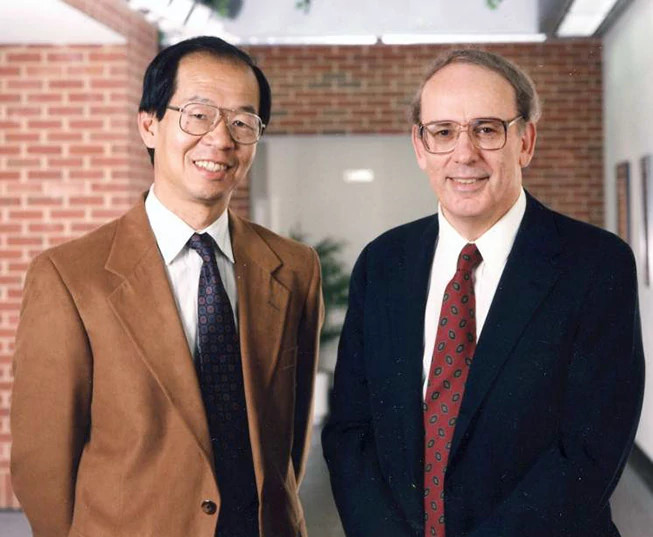Research Studies
At Dana-Farber's Li-Fraumeni Syndrome and TP53 Center, we are committed to conducting ongoing clinical research that will further the understanding and medical management of Li-Fraumeni syndrome (LFS) and a pathogenic or likely pathogenic variant (mutation) in the TP53 gene (TP53+). Here are the current studies we are offering for people with LFS and TP53+ results (please check back for updates):
Li-Fraumeni & TP53: & Progress (LiFT UP) — Enrolling
The LiFT UP study is being done in collaboration with City of Hope in Los Angeles and Baylor College in Houston to understand changes in the TP53 gene that can be found in a blood sample through genetic testing. These TP53 gene changes (called variants) are often but not always associated with Li Fraumeni syndrome (LFS). To learn more about this study including goals, eligibility, and participation, or to ask questions of study staff, please visit LiftUpStudy.org.
Whole Body Magnetic Resonance Imaging (MRI) Study — Enrolling
This study is being done to test a medical technology called MRI in patients who have a TP53+ result to see if cancers can be detected at an early stage. Earlier detection may allow for more effective treatment. Whole-body MRI scanning allows doctors to look at the entire body in one examination without radiation exposure. You will be asked to consent, to complete questionnaires about your personal and family health histories, to complete a physical exam, and to complete a whole-body MRI without IV contrast.
Blood Markers for Early Cancer Detection and Specimen Banking
- Pediatric Solid Tumor Biobank — Enrolling children
- Study of Environmental and Hereditary Factors Responsible for Cancer History (SEARCH) — Enrolling adults
These biobanking studies are being done to learn more about the causes of cancer, including inherited genetic factors and genetic changes in tumor cells. In collaboration with other LFS investigators, we are examining blood for early markers of cancer — DNA and cells — and searching for ways to find tumors as early as possible, even before they can be seen on imaging. You will be asked to consent to collect blood at each visit for research. You may be asked to complete questionnaires on your medical history and family history of cancer.
Tissue Repository for People at High Risk for Cancer: ACT for Others — Enrolling
This study is being done to is to compare breast tissue from people at high risk of cancer to those people at average risk of developing cancer. You will be asked to consent to donate a piece of tissue removed at surgery (after the pathologist has separated all that is needed for diagnosis) for research. You will also be asked to complete two health history questionnaires. We have also used this study to collect tissue from a small skin biopsy for research.
The PROspective Registry of MultiPlex Testing (PROMPT) — Enrolling
This online research registry was created to provide patients, physicians, and researchers with an opportunity to share information about multi-gene genetic testing so that we can better understand the meaning of these genetic mutations. You will be asked to consent and then to complete questionnaires about your personal and family health histories. You can use PROMPT to receive updates from physicians and researchers.
Additional Information
Contact Samantha Stokes at samantham_stokes@dfci.harvard.edu if you have questions about our research.
For a complete listing of studies for those with LFS, visit clinicaltrials.gov and enter "Li-Fraumeni Syndrome" into the "Condition or disease" field.
A History of Our Research
Our program was first developed based on the fundamental work of Frederick P. Li, MD, one of the founders of the field of cancer genetics and one of the physicians who first recognized Li-Fraumeni syndrome, along with Joseph F. Fraumeni, MD. We continue to work with Dr. Fraumeni, who remains a giant in the field.
Learn more about their ground-breaking collaboration

Li-Fraumeni Syndrome and TP53 Publications by Our Team
Genotype-phenotype associations among panel-based TP53+ subjects
Differences in TP53 Mutation Carrier Phenotypes Emerge From Panel-Based Testing
Cancer Screening Recommendations for Individuals with Li-Fraumeni Syndrome
Genotype Versus Phenotype: The Yin and Yang of Germline TP53 Mutations in Li-Fraumeni Syndrome
Revisiting Li-Fraumeni Syndrome From TP53 Mutation Carriers
Germline TP53 mutations and the changing landscape of Li-Fraumeni syndrome
Li-Fraumeni syndrome: report of a clinical research workshop and creation of a research consortium
Li-Fraumeni Syndrome (GeneReviews)